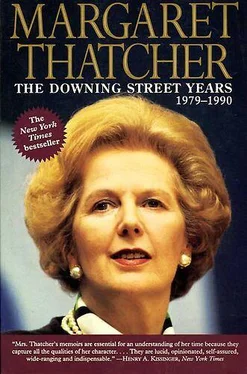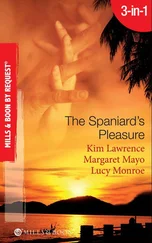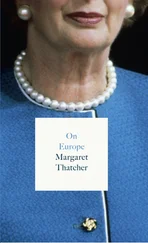What made this more dangerous in the late 1970s was that the United States was undergoing a similar crisis of morale following its failure in Vietnam. In fact, the ‘Vietnam Syndrome’ was perhaps more debilitating than its Suez counterpart because it embodied the conviction that the United States was fortunately incapable of intervention abroad since such intervention would almost certainly be inimical to morality, the world’s poor, or the revolutionary tides of history. Hobbled by this psychological constraint and by a Congress also deeply influenced by it, two presidents saw the Soviet Union and its surrogates expand their power and influence in Afghanistan, southern Africa and Central America by subversion and outright military invasion. In Europe, an increasingly self-confident Soviet Union was planting offensive missiles in its eastern satellites, building its conventional forces to levels far in excess of NATO equivalents. It was also constructing a navy that would give it global reach.
A theory, coined after the collapse of communism to justify the policy of ‘doves’ in the Cold War, holds that because the Soviet Union was comparatively weak in the late 1980s, after almost a decade of western economic and military revival, it must have been a hollow threat in the late 1970s. Quite apart from the logical absurdity of placing a cause after its effect, the history of the Soviet Union from 1917 until just the other day refutes this argument. The Soviet Union was a power which deliberately inflicted economic backwardness on itself for political and ideological reasons, but compensated for this by concentrating resources on its military sector and by using the power this gave it to obtain further resources by force or the threat of force. It would extort subsidized credits from a West anxious for peace in periods of ‘thaw’, and seize new territories by subversion and conquest in periods of ‘chill’. By the late 1970s, the US, Britain and our European allies were faced by a Soviet Union in this second aggressive phase. We were neither psychologically, nor militarily, nor economically in shape to resist it.
Taken together, these three challenges — long-term economic decline, the debilitating effects of socialism, and the growing Soviet threat — were an intimidating inheritance for a new Prime Minister. I ought perhaps to have been more cowed by them in my imagination than in fact I was as we drove back to Flood Street. Perhaps if I could have foreseen the great roller-coaster of events in the next eleven years, described in this volume, I would have felt greater apprehension. Perversely, however, the emotion I felt was exhilaration at the challenge. We had thought, talked, written, discussed, debated all these questions — and now, if all went well in the next few weeks, we would finally get the chance to deal with them ourselves.
Some of this exhilaration came from meeting a wide range of my fellow-countrymen in four years as Opposition Leader. They were so much better than the statistics said: more energetic, more independent, more restive at the decline of the country, and more ready than many of my parliamentary colleagues to support painful measures to reverse that decline. We would incur more odium, I believed, by reneging on our promises of radical conservatism with a U-turn than by pressing firmly ahead through whatever attacks the socialists hurled against us. I sensed, as apparently Jim Callaghan also sensed in the course of the campaign, that a sea change had occurred in the political sensibility of the British people. They had given up on socialism — the thirty-year experiment had plainly failed — and were ready to try something else. That sea change was our mandate.
And there was a more personal factor. Chatham [2] The eighteenth-century statesman and prime minister, 1766–8.
famously remarked: ‘I know that I can save this country and that no one else can.’ It would have been presumptuous of me to have compared myself to Chatham. But if I am honest, I must admit that my exhilaration came from a similar inner conviction.
My background and experience were not those of a traditional Conservative prime minister. I was less able to depend on automatic deference, but I was also perhaps less intimidated by the risks of change. My senior colleagues, growing to political maturity in the slump of the 1930s, had a more resigned and pessimistic view of political possibilities. They were perhaps too ready to accept the Labour Party and union leaders as authentic interpreters of the wishes of the people. I did not feel I needed an interpreter to address people who spoke the same language. And I felt it was a real advantage that we had lived the same sort of life. [3] The first fifty years of my life will be related in a second volume.
I felt that the experiences I had lived through had fitted me curiously well for the coming struggle.
I had grown up in a household that was neither poor nor rich. We had to economize each day in order to enjoy the occasional luxury. My father’s background as a grocer is sometimes cited as the basis for my economic philosophy. So it was — and is — but his original philosophy encompassed more than simply ensuring that incomings showed a small surplus over outgoings at the end of the week. My father was both a practical man and a man of theory. He liked to connect the progress of our corner shop with the great complex romance of international trade which recruited people all over the world to ensure that a family in Grantham could have on its table rice from India, coffee from Kenya, sugar from the West Indies and spices from five continents. Before I read a line from the great liberal economists, I knew from my father’s accounts that the free market was like a vast sensitive nervous system, responding to events and signals all over the world to meet the ever-changing needs of peoples in different countries, from different classes, of different religions, with a kind of benign indifference to their status. Governments acted on a much smaller store of conscious information and, by contrast, were themselves ‘blind forces’ blundering about in the dark, and obstructing the operations of markets rather than improving them. The economic history of Britain for the next forty years confirmed and amplified almost every item of my father’s practical economics. In effect, I had been equipped at an early age with the ideal mental outlook and tools of analysis for reconstructing an economy ravaged by state socialism.
My life, like those of most people on the planet, was transformed by the Second World War. In my case, because I was at school and university for its duration, the transformation was an intellectual rather than a physical one. I drew from the failure of appeasement the lesson that aggression must always be firmly resisted. But how? The ultimate victory of the Allies persuaded me that nations must co-operate in defence of agreed international rules if they are either to resist great evils or to achieve great benefits. That is merely a platitude, however, if political leaders lack the courage and farsightedness, or — what is equally important — if nations lack strong bonds of common loyalty. Weak nations could not have resisted Hitler effectively — indeed, those nations that were weak did not stand up to him. So I drew from the Second World War a lesson very different from the hostility towards the nation-state evinced by some post-war European statesmen. My view was — and is — that an effective internationalism can only be built by strong nations which are able to call upon the loyalty of their citizens to defend and enforce civilized rules of international conduct. An internationalism which seeks to supersede the nation-state, however, will founder quickly upon the reality that very few people are prepared to make genuine sacrifices for it. It is likely to degenerate, therefore, into a formula for endless discussion and hand-wringing.
Читать дальше












